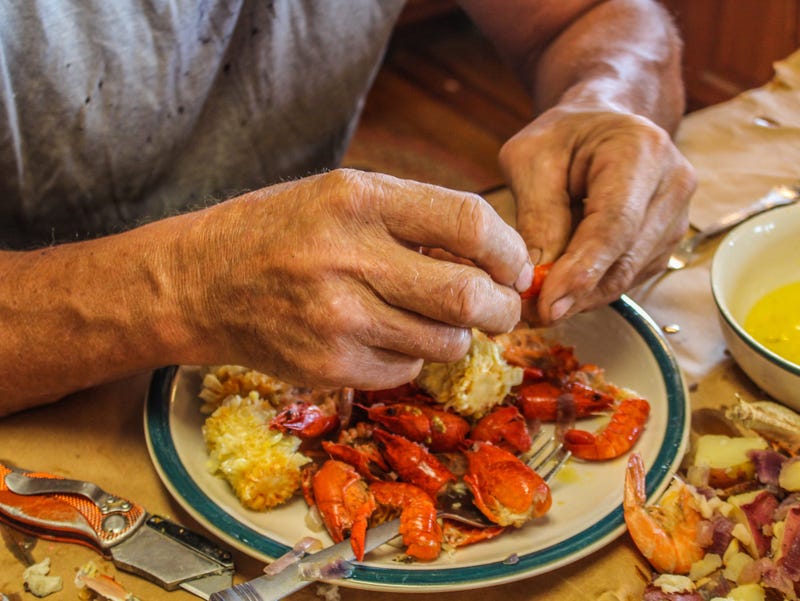
Food insecurity is an issue for many more Louisianians in the midst of the coronavirus pandemic. Local food banks and other charitable organizations are rising to the task of keeping everyone fed, but challenges remain as supply chains are tested and demand keeps rising. To explain the issues at play, Newell invited Agriculture & Forestry Commissioner Dr. Mike Strain onto the program Wednesday morning.
“You are announcing this new Coronavirus Food Assistance Program, go ahead and tell us about it!” Newell began.
“We’re reaching out to all certified participants and trying to connect them directly with the food banks,” Strain said. “In addition, the USDA is going to be buying $100 million a month in dairy, meat, and fresh produce, and they’re working with vendors who are going to pre-box that, and then we’re going to get these boxes to food banks and other organizations to hand out directly. So we’re working on a local basis to try to get as many local products from certified Louisiana growers as possible, but also working with USDA… when you look at the amount of money that’s going to be spent, there’s going to be quite a bit available there.”“We’ve seen some tragic scenes on the news of farmers having to dispose of their harvests, but it looks like everyone is coming together to make sure that doesn’t happen again,” Newell continued. “The private sector and government are meeting halfway to coordinate on that so we don’t see that food waste any more.”
“It is heart-wrenching to see that happen,” Strain agreed. “The biggest part of that issue is the labor and logistics, and what happens when you don’t have the physical labor to get that product out of the field and into processing. In the particular case of milk, we lost some institutional use, about 10% of fluid milk was going to restaurants and other institutions. Then it starts backing up at the cheese plants, which you cannot convert into a bottling plant. The way our economy works, especially with highly-perishable products, is that everything is an on-time delivery system. When that gets disrupted, you have breakdowns in logistics and in supply and demand. We’re trying to fix it in real-time, but that’s why milk is such a big issue and that’s why the USDA is buying up as much fluid milk as they can and getting it converted into cheese or get it into the proper hands. 10% of the nation’s milk supply is a huge amount. It’s the same thing you saw this week with oil. Did you ever dream of a day when you could get paid $37.63 to take a barrel of oil?”“This is a very expensive education for us who are not in the agricultural business,” Newell said, “Education of the relational analyses of all these pieces and parts that come together, and about how important the timing of it all is.”
